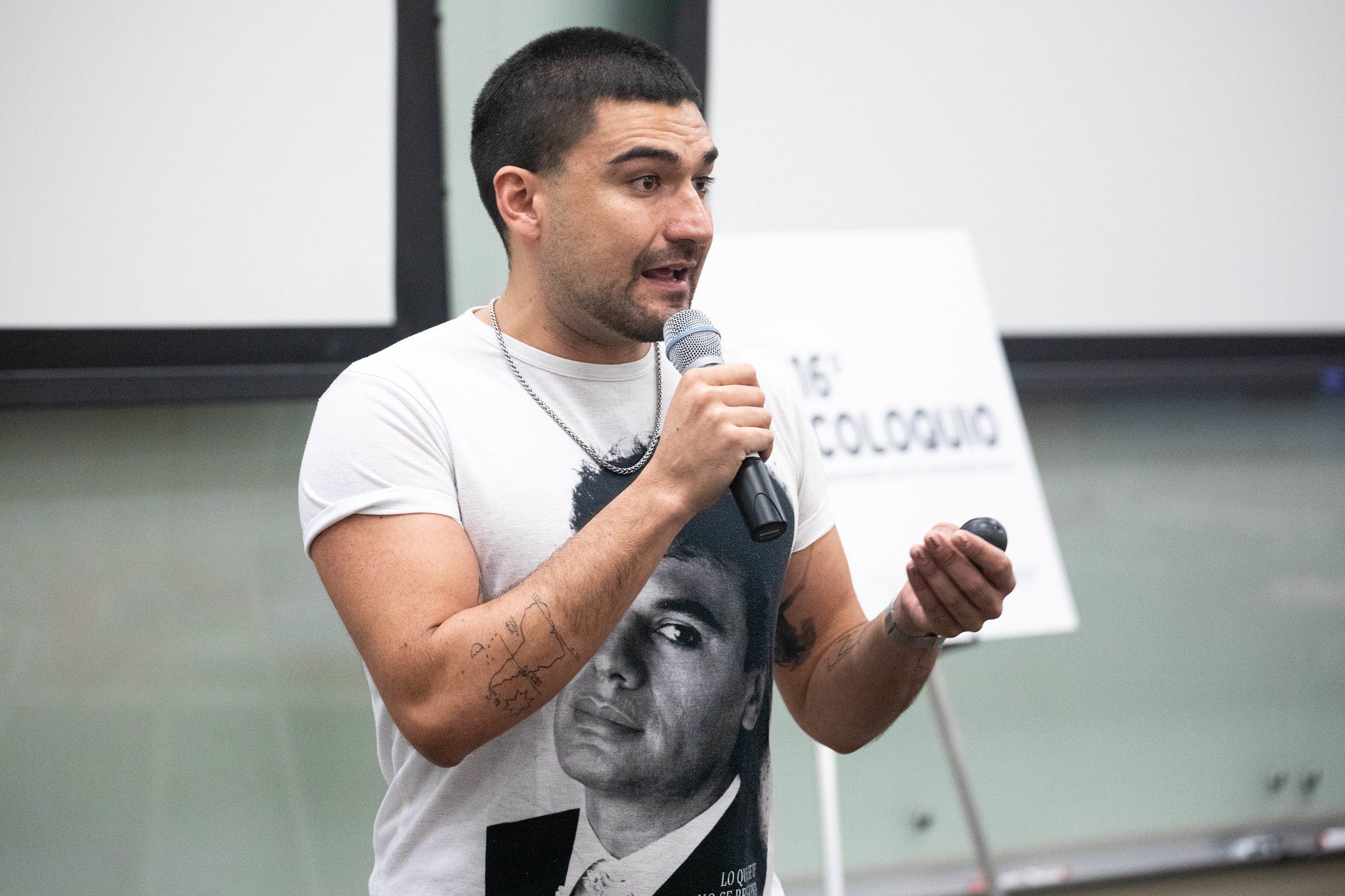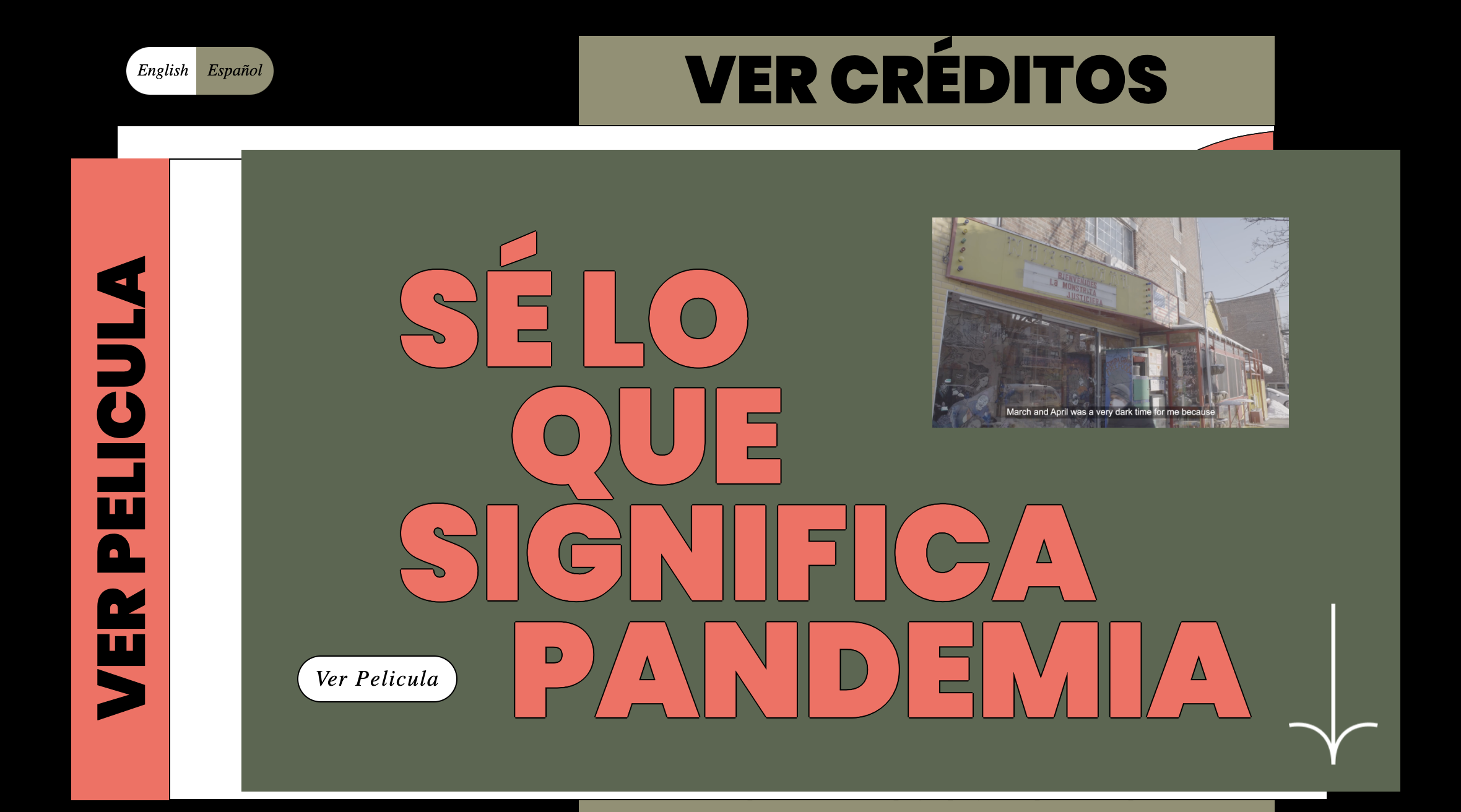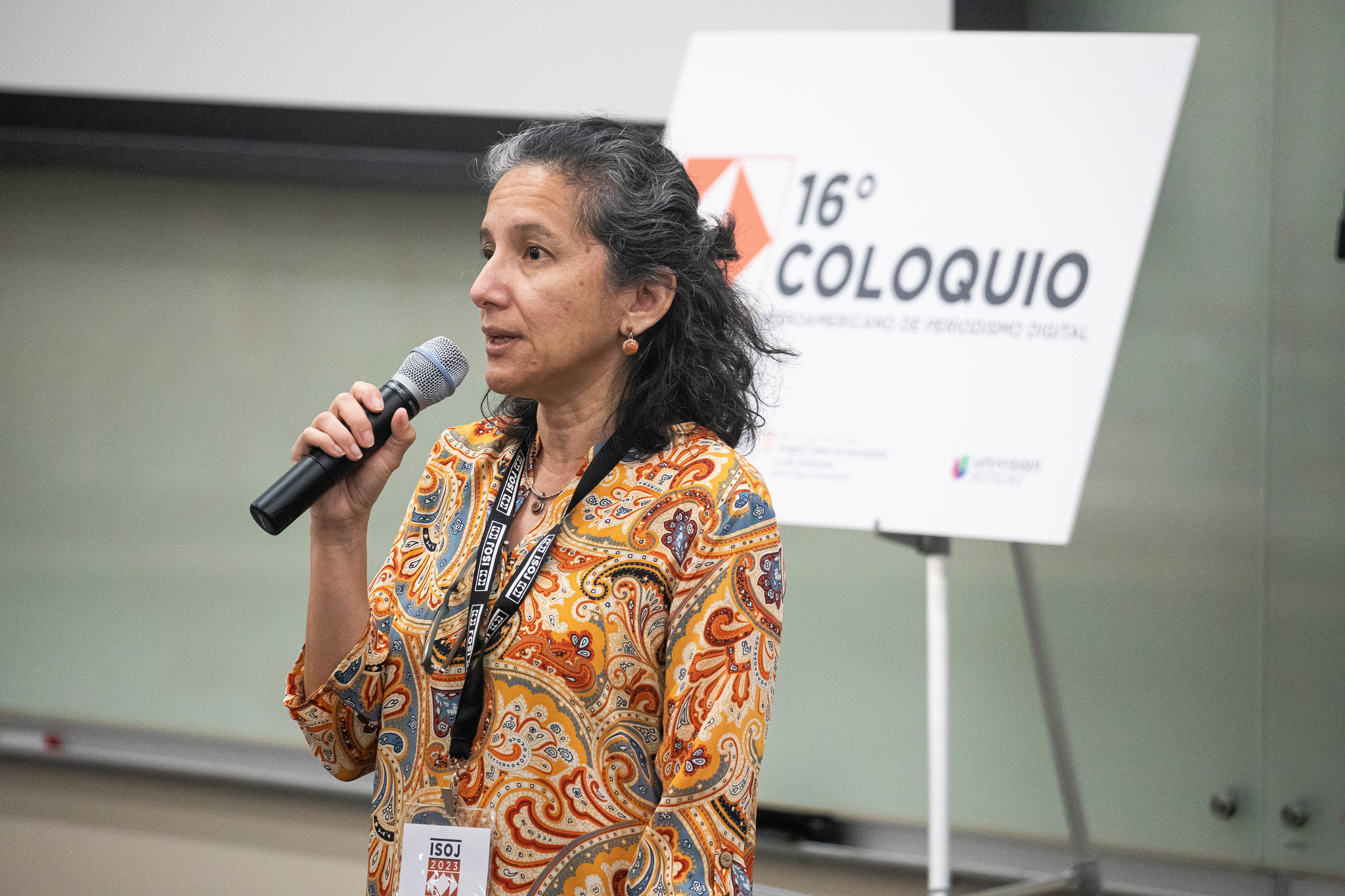May 1, 2023 | Coloquio
Documented Semanal shows how to use WhatsApp to meet information needs of underserved communities
Despite the fact that WhatsApp has set several barriers for its service to be used only for personal communication and not for mass distribution of information, there are several journalistic initiatives that have managed to work around these barriers and use the platform to offer newsletters and useful content for their communities.
One of these initiatives is Documented Semanal, a weekly information service in Spanish via WhatsApp for the Latin American immigrant community in New York City, which has served to cover information needs of this population that were not being met by traditional media. The initiative, which was presented during the 16th Ibero-American Colloquium on Digital Journalism, within the framework of the International Symposium on Online Journalism (ISOJ), also represents a successful case of audience engagement and driving traffic to the news outlet site.
Nicolás Ríos, Documented’s director of audience and community, said that his newsroom noticed that there was an information gap for low-income Spanish-speakers who came from other countries in New York City. They conducted research with members of that population to find out how best to reach them with relevant information.

Nicolas Rios, Documented’s director of audiences and communities, said Documented Semanal was created after the information gap that exists in New York City for Spanish-speaking migrants. (Photo: Patricia Lim/Knight Center)
The team found that the majority of the researched individuals were WhatsApp users. They also found that this population consumes television news, mainly in Spanish, but disagrees with the way television media portrays them, mainly as perpetrators or victims of crimes.
The research also found that this population was not interested in political news, and that most said they needed information on how to navigate bureaucratic issues, from how to get health insurance to how to regularize their immigration status.
With that research in mind, Documented decided to launch Documented Semanal, a community on WhatsApp that distributes brief, useful, Spanish-language information on a weekly basis and on an individual basis to each user. The initiative also includes a library of resources and guides with information that migrants most commonly need.
“It’s [information] outside of the ‘news cycle.’ We are not saying here ‘Biden said this,’ or ‘the Republicans introduced this other bill in Congress,’ etc., because that doesn’t change your life tomorrow. On the other hand, the information we are carrying can be acted upon to improve your life,” Ríos said.
Documented Weekly works through a distribution list to which interested users have to register. Once registered, the team sends them the content in a one-to-one chat, so that the user’s phone number is not visible, as it would be in a WhatsApp group.
Since WhatsApp’s usage policies prohibit the use of automated content delivery systems, the Documented team has to distribute the information in an almost hand-crafted way. In addition, WhatsApp does not offer any analytics data on the content’ reach.
To work around this obstacle, the Documented Weekly team chose to go directly to its registered users, who already number more than four thousand, to spark conversations on topics of interest to them.
The volume of responses is an indicator of reach for the newsroom. But in addition, the team has developed methodologies to convert those conversations on WhatsApp into data, by cross-referencing the topics mentioned by subscribers with indicators such as Google Trends and Documented’s own analytics of articles on its website.
“When that match of Trends with our analytics and with the conversations happens, it’s magic, because we come up with an article that may be a new guide or a story that we know has an audience. Those tend to be the most consumed stories of the week,” Rios said. “And then that guide that is created based on conversations ends up being one more link in the repository of resources. In the end, there is a virtuous circle among the three parts.”
In addition, from those same conversations often come topics or sources for other stories that transcend the instant messaging platform. Those are published on the main site, whose audience includes immigration professionals and decision-makers, Ríos said.
The news outlet has experimented with sparking conversations from voice notes on WhatsApp. During the pandemic, Documented sent out a mini-podcast audio of just over a minute asking its members how the pandemic had impacted their lives. Although the reach was difficult to measure in terms of analytics, the team received responses with valuable information that they were able to transform into a high-impact product: the short documentary film “I Know What Pandemic Means.”
“We got about 60 responses, and they were so rich in information and so personal, because let’s remember that WhatsApp is the app we use to talk to our mother, children, cousins…”, Ríos said. “It’s a personal conversation and those answers were so rich that we then made them into a 15-minute mini-documentary, where we put faces to the people. We worked with a production company and that documentary then ended up traveling to quite a few festivals in North America.”
With members of the migrant community with reading limitations in mind, Documented turned some of his guides into illustrations with the help of some artists and sent them in groups of four images to its WhatsApp subscribers.
User trust, the best metric
Rios said that 60 percent of the readers who come to Documented’s website come from the guides and materials the team distributes on WhatsApp. And vice versa, a high percentage of users who subscribe to Documented Weekly on WhatsApp came because they searched online for ways to solve a need related to their immigration status. Another smaller percentage is added through flyers with QR codes that the team has distributed around New York City.

The Documented team made the short film “I Know What Pandemic Means” from voice notes sent by members subscribed to their newsletter on WhatsApp. (Photo: Patricia Lim/Knight Center)
“I would say 95% of the people come because they searched [the internet for questions like] ‘how to get free food in New York.’ They get on our site, they get the banner and they come [to the WhatsApp list]. It also happens that with the waves of needs is how they arrive,” Ríos said.
These waves of need also lead migrants to seek answers to their individual issues through Documented Semanal. Ríos said that several members have shared personal stories and even private information with them in their search for support. That level of trust is one way the Documented team has been able to measure the impact of their initiative through WhatsApp.
“People trust us so much that we have come to have people’s immigration papers. That is very sensitive information to be sharing. Even so, they send us their papers and […] they write to us asking for information on asylum, lawyers, etc.,” Ríos said. “We were very clear that we do not provide lawyers services, as a nonprofit for immigrants. We provide the service of delivering the information about who delivers those services.”
Documented strives to make its feature stories known beyond New York, which is why it has begun to create alliances with news outlets in Latin American countries where immigrants come from, so they can publish, free of charge, stories of their citizens who undertake the route to the United States.
Documented Weekly has begun generating revenue by selling advertising space. Each issue of the weekly newsletter sent by WhatsApp includes ads, mostly from New York City [Hall], which has a local media advertising budget.
“The truth is that we are able to generate some revenue, enough to be able to pay for the entire WhatsApp operation. But we are indeed looking for [other] ways to generate more revenue,” Ríos said.
The journalist announced during the Colloquium that Documented will bring the same Documented Weekly initiative to Haitian and Chinese immigrant communities in New York, with content in their languages distributed weekly via WhatsApp.
An investigation behind the informational use of instant messaging
Prior to the presentation of Documented Semanal, Lourdes Cueva-Chacón, assistant professor at the School of Journalism & Media Studies at San Diego State University, shared part of the research she conducted along with her colleague Jessica Retis, on the distribution of informational content for Spanish-speaking communities in the United States through instant messaging platforms, mainly WhatsApp.
The idea behind the study was to find out why some journalistic media had chosen to use platforms such as WhatsApp to distribute informational content and what information needs they sought to satisfy.
To do so, they studied the cases of six digital media: Documented Semanal (New York), Conecta Arizona (Arizona), El Migrante (San Diego and El Paso), El Tímpano (California), ¿Qué Hay de Nuevo New Hampshire? (New Hampshire), and Tu Voz (Nevada).

Dr. Lourdes Cueva-Chacón, from San Diego State University, shared details of her research on the distribution of information content for Spanish-speaking communities through messaging platforms. (Photo: Patricia Lim/Knight Center)
In the first part of the study, it was found that among the most important information needs that these media are covering with their instant messaging services are those related to health, international news, emergencies and public safety, civic information and migration, and economic development and employment.
Cueva Chacón put a spotlight on the place that international news occupies in the interest of Spanish-speaking communities in the United States. It shows that it is important for this population to be aware of what is happening in their countries of origin, which is scarcely covered in traditional U.S. media.
According to the study, more than half of the media investigated produce original content focused on the communities they serve. In addition, the production of content derived from direct contact with readers is a constant in most of the news outlets.
“Before the pandemic, people at El Tímpano, at Conecta Arizona, at Documented, were already doing some form of service to their communities,” Cueva Chacón said. “So this constant listening activity is what gave them the idea that they should do it on WhatsApp, because the whole Spanish-speaking community is already on WhatsApp and the way is to reach them through this tool.”

